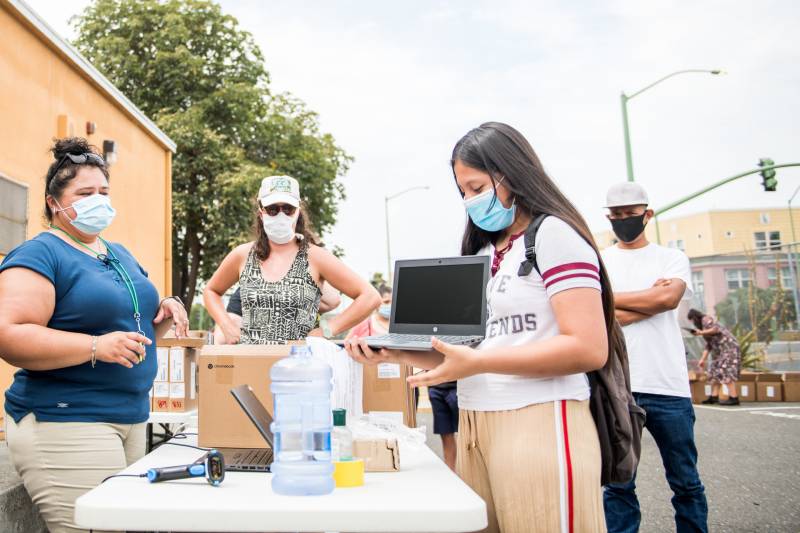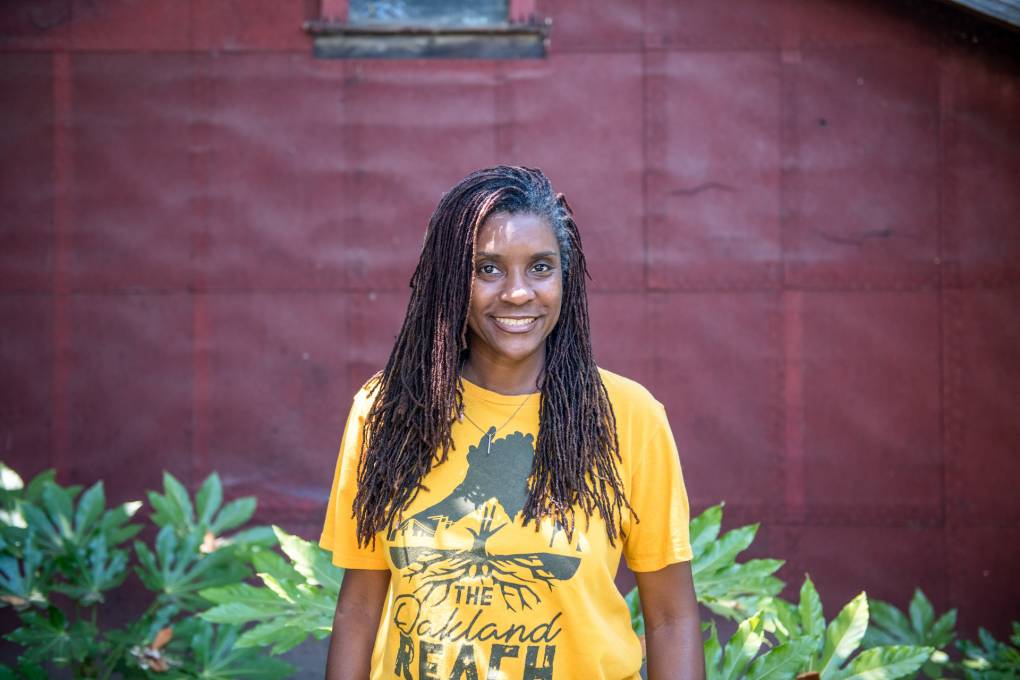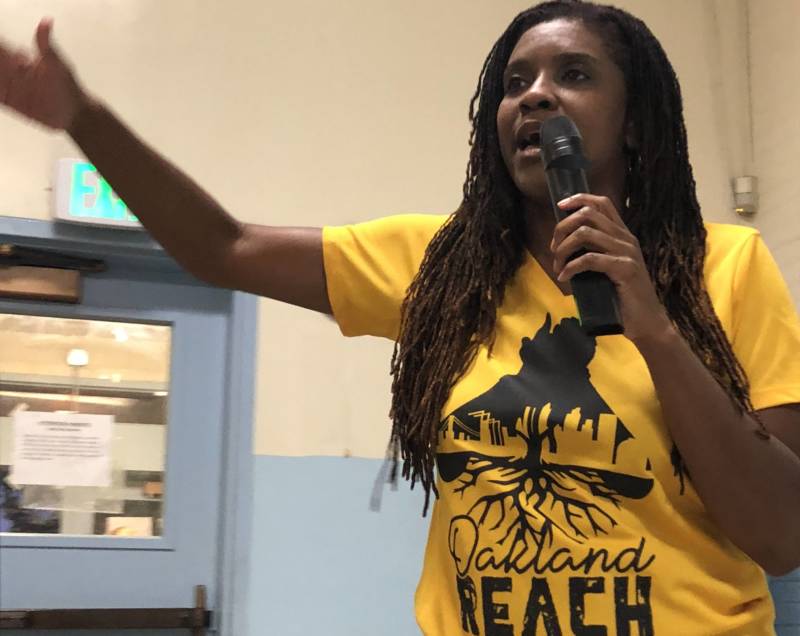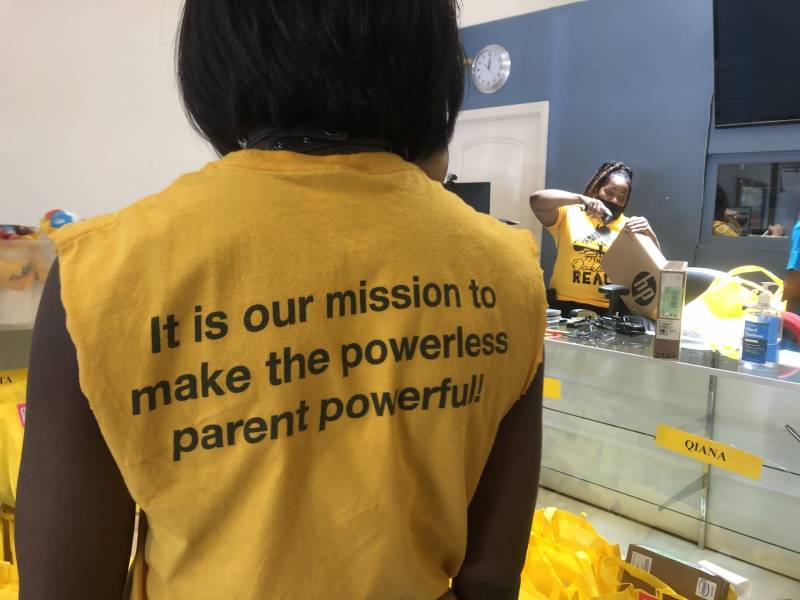Oakland students are part of a larger group who filed a lawsuit Monday accusing California and its top education leaders of violating the state constitution by denying traditionally underserved students equal access to educational opportunities during the pandemic.
“In California, the state has a constitutional duty to provide equal access to education to all students,” said Jesselyn Friley, an attorney with the firm Public Counsel, who helped file the suit. “Our theory is that the state has fallen behind on that responsibility, and during the pandemic it has only gotten worse.”
The suit, filed in Alameda County Superior Court, calls out the state and its education department for mishandling remote education by failing to provide districts with adequate guidance and neglecting to ensure that students, teachers and parents have the basic tools and support needed for distance learning. It also accuses the state of failing to hold school districts accountable for meeting distance education standards put in place by the state Legislature in response to the pandemic.
Plaintiffs, who include students and community organizations from Oakland and Los Angeles, contend that Black and brown students, low-income students and those who are unhoused or have disabilities have not received the remote learning support they need.
Angela J. has three children — including twins — in the Oakland Unified School District who are plaintiffs in the suit. (Attorneys for Public Counsel asked KQED to not provide her real name because of concerns about retaliation.)
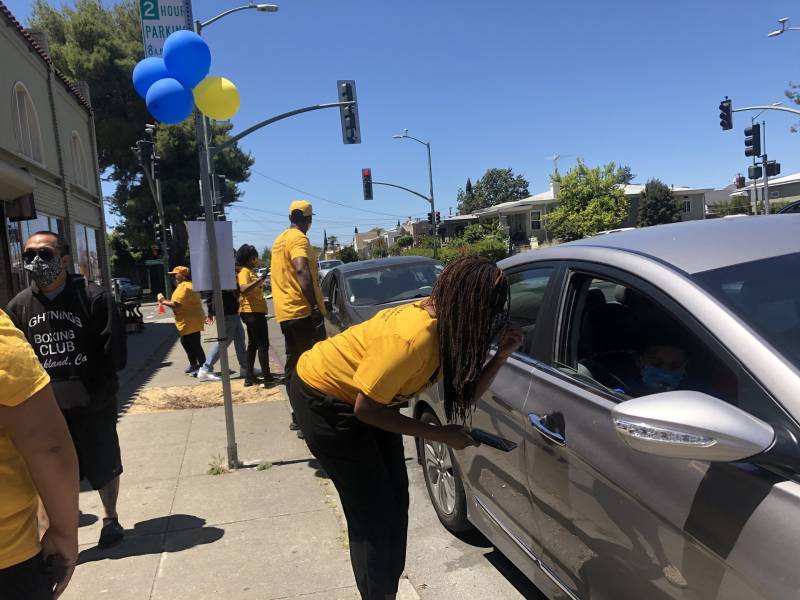
During the spring, Angela said, her twins’ second grade teacher met with students on Zoom only twice between mid-March and late May. “She just abandoned the whole class,” she said.
As a result, her twins have fallen behind in school; they’re still struggling with subtraction when curriculum dictates they should be learning multiplication and division, she said. And their brief daily online interactions with teachers this fall aren’t making up the slack.
